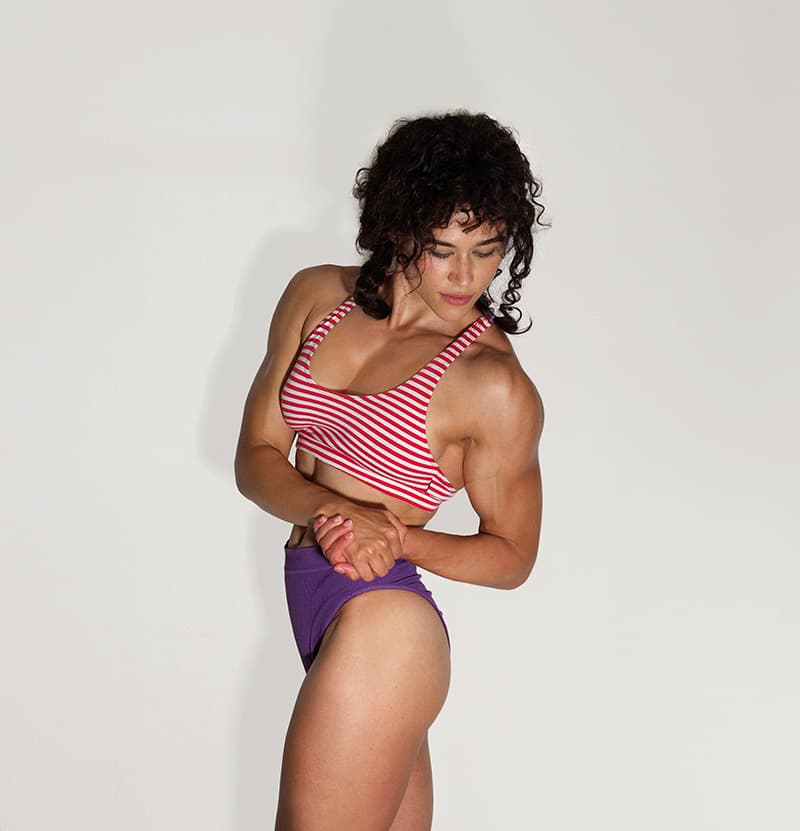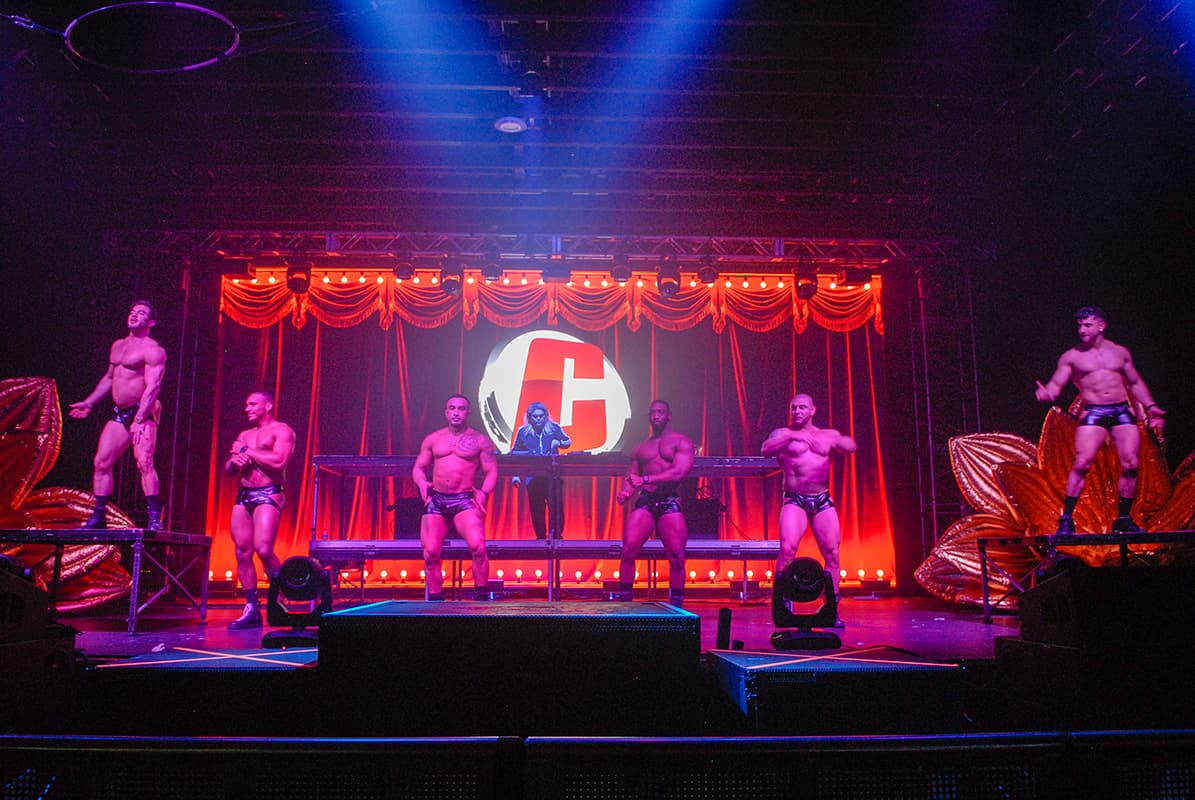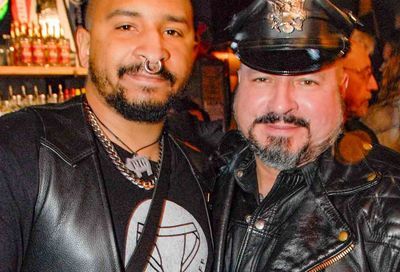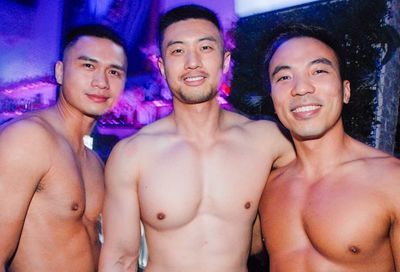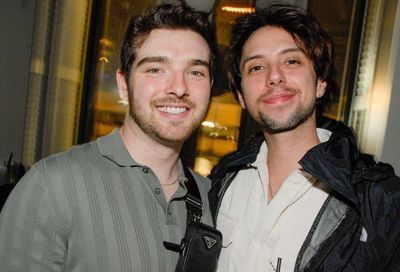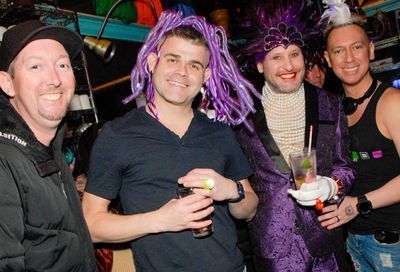Babes in Boyland
Susan Morabito Crashes the
Susan Morabito is different, and the double X chromosomes aren’t the extent of it. As one of the circuit’s most sought-after DJs, she’s carved out a name for herself in a male-centered universe. Her method for getting there wasn’t any different from most DJs: play the music like you love it.
Love it she does, and her twenty years as a DJ are more than enough proof. She’s gone well beyond calling the shots. In fact, her eminence has allowed her the freedom to pick her parties rather than strive for the spotlight.
In keeping with her regular “policy, ” she’ll be playing the Saturday night After-Party at Cherry 7. Though she’s more than qualified for the main event, Morabito consistently opts for the more intimate, more “sophisticated ” setting. As Cherry’s only female DJ, she’s single-handedly raising the bar. Ready for a little competition, boys?
MW: The dance music scene today is a far cry from what it was twenty years ago. Can you use your first gig to illustrate how it’s changed?
SUSAN MORABITO: Not really, because my first gig was for a lesbian crowd. But using my first gig that was played for men, I think the biggest difference was that back then you were celebrating the fact that you had a safe haven to call your own. This was a time when you didn’t dare put signs outside of gay clubs — it was too risky. So the sense then was much more celebratory. I don’t really feel that anymore.
MW: You’re certainly an anomaly in such a male-dominated scene. Were you a tomboy growing up?
MORABITO: Oh yeah.
MW: Not just in the circuit, but in general, most DJs happen to be male. Why do you think that is?
MORABITO: There could be a couple reasons for that. I worked for Vinylmania Records when I first moved to New York in 1987. It was predominantly male-frequented, and one day I asked the guy who owns the store, Charlie Grappone, why that was. He looked at me and said, “When you’re born with a dick, you’re born with a love of music. ” [Laughs.]
MW: You think Charlie was on to something?
MORABITO: I don’t really have an answer for that, but even playing men’s bars versus women’s bars, men seem to be much more in tune to the music. The tribalistic nature of the dance began thousands of years ago, and it was a male ritual. When you look back in history, the dance has always been a male ritual. But as far as there being fewer female DJs, what can I say but it’s a man’s world and there’s still discrimination in the gay male community.
MW: Women’s circuit parties seem to be gaining popularity, though.
MORABITO: But it’ll never reach the level that the male circuit has. I think men have other reasons for going out. Women tend to be in relationships, and they’re not going to hop on planes, travel across the country, dance, look for drugs and do all the other things that go on at a circuit party. It’s just not really of interest to most women.
MW: So why is it of interest to you?
MORABITO: The music. The reason I play for gay men is that at the time I started playing, gay men happened to like the music I liked, so I knew that was the crowd I should go for. And I love the long hours. You can’t really play that way for the lesbian community.
MW: So you would never play a women’s circuit party?
MORABITO: No. They wouldn’t get my vibe.
MW: Do you think your peers in the circuit DJ community see you as just one of the boys?
MORABITO: No, they see me as too much of a bitch to consider me one of the boys. I’ve got that reputation and it doesn’t bother me because a bitch is just a strong woman, someone who’s not a pushover. How many of them see me that way? I don’t know. I’m sure some of them respect me. Honestly, I really don’t give a damn.
MW: You say you got started in circuit parties because of the music, but the music has changed quite a bit in two decades. Some say its role has diminished.
MORABITO: Absolutely. A dance club is a dance club and it should be about the music first and foremost, but I think other things have taken priority. I’ve been playing for a long time and have reached a point where I’m going to do what I believe in, regardless of whether or not the music is taking a backseat. The music has gotten a lot more commercial and I will not go with that program.
MW: But if that’s what people want, isn’t it your job as an entertainer to give it to them?
MORABITO: I am an entertainer and I have to please the crowd, but I think a DJ’s job more than anything should be to educate the crowd about music. We’re the ones living in record stores twenty-four seven. One of the reasons I became a DJ was because of a passion for music and wanting to turn people on to something different, something that they don’t have easy access to.
MW: Even as circuit parties have exploded in popularity, a lot of DJs seem to be of the opinion that the scene is going downhill.
MORABITO: The scene has become K-Mart. Or Gay-Mart. [Laughs.] I have to watch myself because I can get really nasty and snide. Whatever. Junior gets away with it. But this is why I do not do main events. After-parties are much more personal. I feel that I can be more musically creative and free. And after twenty years of playing, I’m getting to the point where I want to be able to do what I want to do. I’ve cut my teeth, you know? I’ve done my share of compromising. The older I get and the longer I do this, the more set in my ways I become.
MW: Many main event DJs turn out to be very “here today, gone tomorrow. ” Do you think your longevity has benefited from your policy?
MORABITO: I think it has something to do with it. This is a little secret that I’ll let out and maybe some other DJs will benefit from it: taking a gig is like taking a role in a movie. You have to take the role that suits you. If you take a role that doesn’t suit you, it isn’t going to work. I won’t take a Friday night party, I’m too big. I’m not an opening DJ. The main events may be the bigger role, but I think the after-parties are much more serious and sophisticated. They’re like underground movies at the Angelika Theater.
MW: But you still have to keep your crowd happy.
MORABITO: Sure, you have to throw them a bone before you give them something else, so I’ll put on a Deborah Cox or something that they can throw their hands in the air to, but I’m not going to do that all night long and become some human hit parade jukebox.
MW: What do you like to play then?
MORABITO: I revel in the downtrip, and it’s not there anymore. The last two or three hours of parties used to be only records under 115 beats per minute. DJs don’t play a downtrip like they did five years ago. Drugs play a major role in what people want to dance to, and I think crystal has really killed that part of the evening. That used to be my favorite part of the night.
MW: A lot of DJs today seem to revel in the crux of the evening, the high-intensity crescendo.
MORABITO: Not me. I love the downtrip. The music is so much better produced. It’s more emotional. It taps into a more spiritual aspect. But let’s face it, not everyone wants to get in touch with that side of themselves.
MW: You’ve been DJing now for twenty years. When are you going to get into the studio?
MORABITO: People always ask me this, and for a variety of reasons I’ve held back. But if you really want to know, I’m going to start working on my first record at the end of May. It’s something I’ve wanted to do for a long time, but I wanted to do it myself. A fairly well-known producer has offered to guide me through the process and work with me. I’m not going to say who he is just yet — we’ll let that be a surprise — but I’ll get to actually do it myself, press the buttons, explore and make mistakes — which is great. Brilliance comes out of mistakes.
Support Metro Weekly’s Journalism
These are challenging times for news organizations. And yet it’s crucial we stay active and provide vital resources and information to both our local readers and the world. So won’t you please take a moment and consider supporting Metro Weekly with a membership? For as little as $5 a month, you can help ensure Metro Weekly magazine and MetroWeekly.com remain free, viable resources as we provide the best, most diverse, culturally-resonant LGBTQ coverage in both the D.C. region and around the world. Memberships come with exclusive perks and discounts, your own personal digital delivery of each week’s magazine (and an archive), access to our Member's Lounge when it launches this fall, and exclusive members-only items like Metro Weekly Membership Mugs and Tote Bags! Check out all our membership levels here and please join us today!




